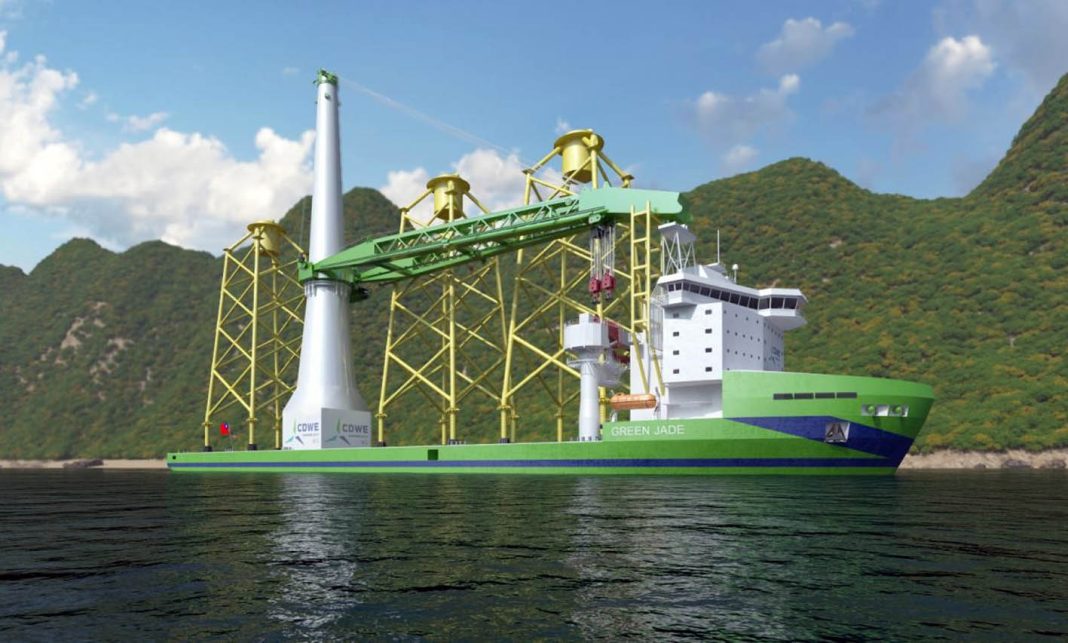The technology group Wärtsilä’s experience and integration capabilities for wind farm service vessels has resulted in a broad scope of the company’s solutions being selected for a large wind farm main installation vessel (MIV).
The ship is to be built at the CSBC shipyard in Taiwan for the joint-venture company CDWE (CSBC-DEME Wind Engineering) owned by CSBC and Belgium-based DEME Group. The order was placed in April.
The 216m-long DP-3 MIV is the largest special vessel to be built at the CSBC yard for offshore wind farm applications. This high end vessel, Green Jade, will play a major role in developing the offshore wind farm business in both new and established markets, including Taiwan.
High efficiency and the flexibility to comply with the special needs of the vessel were key criteria in the selection of the Wärtsilä solutions.
The full scope includes four Wärtsilä 46DF and two Wärtsilä 20DF dual-fuel engines, as well as Transverse and Steerable Thrusters, DP-3 solution, Navigation system, and selective catalytic reduction (SCR) systems for emissions abatement. The company will also provide site supervision services.
“Wärtsilä has earlier delivered a comprehensive scope of integrated solutions for a similar vessel for one of the partners in this joint-venture company. The success of that project was clearly a contributing factor in the award of this contract,” says Östen Lindell, Director, Marine Unit East Asia & China, Wärtsilä.
“We have worked with Wärtsilä for many years and have been very satisfied with the support they provide. In particular, their well-proven solutions and integration skills shorten the engineering and construction time, which is crucial to enabling an on-time delivery,” says Mr Tseng CSBC President and CDWE Chairman.
The Wärtsilä equipment is scheduled to be delivered during 2021 and the ship is expected to begin operations in the Taiwan Straits in 2023.
It will help boost Taiwan’s wind-power capacity, thereby aiding the government’s programme to achieve a 20 percent share of its energy from renewable sources by 2025.


